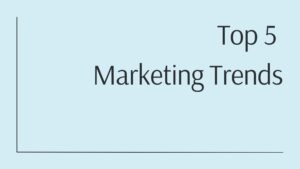Selling a business is one of the most significant decisions an entrepreneur can make. Whether you’re ready to retire, moving on to a new venture, or simply need to cash out for other reasons, understanding how to price your business properly is critical. Not only will it determine how much you’ll get for the business, but it also plays a big part in how quickly the business sells.
Many factors contribute to how a business is valued, including the type of business, the method of valuation used, and even the current economic climate. Business valuation is not an exact science—two experts could come up with different answers about what a business is worth, depending on their approach. This variability often leads to confusion and frustration for business owners trying to get a fair deal.
But don’t worry, we’ll walk through the key steps in understanding how to determine your business’s market value, including the different valuation methods, factors that affect pricing, and how to set an asking price.
What Goes Into Determining the Value of Your Business?
Valuing your business accurately is more of an art than a science, but understanding the fundamental principles of valuation will give you a solid starting point. Keep in mind that how much your business is worth depends on several key factors.
1. Industry and Sector
The industry you operate in plays a significant role in determining how much your business is worth. Some industries are highly profitable and have more stable growth, while others may be riskier or less profitable. For example, tech startups may be valued more highly than local retail businesses due to the rapid growth potential of the tech sector. Each industry has its own valuation norms based on its stability, market demand, and growth prospects.
2. Valuation Method
There are several different methods used to value a business, and your choice will significantly impact the final number. Some methods focus on revenue and profits, while others look at tangible assets or how similar businesses are selling in the market. We’ll explore these methods more deeply shortly.
3. Economic Environment
The state of the economy can also influence business valuations. In a booming economy, businesses tend to be worth more, and buyers are more likely to pay a premium for businesses with growth potential. Conversely, in a downturn, valuations might be lower, and buyers may be more hesitant to make large purchases.
4. Financial Statements
Your company’s financial health is one of the most important factors in determining its value. If your business has strong revenue, profits, and cash flow, it will generally be worth more than one with inconsistent earnings or high debt. Clean, well-organized financial statements that are up-to-date and accurately reflect the health of your business are critical for valuation. Buyers will scrutinize these documents closely, so it’s essential to make sure your records are in order before listing your business for sale.
The Three Main Valuation Approaches
When valuing a business, there are three main approaches that experts typically use. Each approach provides a different perspective on your company’s worth, and depending on your business type and industry, one might be more relevant than others. Let’s take a closer look at these three primary valuation methods.
1. Revenue-Based Valuation
A revenue-based valuation approach looks at your business’s earnings to determine its value. This method is particularly useful for businesses that are generating consistent revenue streams, like service-based businesses or subscription models.
Income Capitalization Method
This method involves capitalizing your business’s expected future income into a present value. It’s calculated by multiplying your business’s expected income by a capitalization rate (which reflects the risk and expected return). For example, if your business generates $200,000 in annual income and the market capitalization rate is 10%, your business might be valued at $2 million.
Discounted Cash Flow (DCF) Method
This method values your business by estimating its future cash flows and then discounting those future values to the present. It’s especially useful for businesses that are in a growth phase and expect to generate increasing cash flow over time. The DCF method considers factors like inflation and the time value of money to determine an accurate valuation.
Claim Methods (e.g., EBITDA Multiplier)
The EBITDA (Earnings Before Interest, Taxes, Depreciation, and Amortization) multiplier method is another revenue-based approach. It calculates your business’s value by multiplying its EBITDA by a certain industry multiple. For example, if your business’s EBITDA is $500,000 and the industry multiple is 4, your business might be valued at $2 million.
2. Asset-Based Valuation
The asset-based valuation approach focuses on the value of your business’s assets rather than its earnings. This method is commonly used for companies that own substantial tangible assets, like real estate, equipment, or inventory.
In asset-based valuation, a business’s total value is calculated by adding up the fair market value of its assets and subtracting any liabilities. This approach is useful for businesses that may not be generating significant profit but hold a lot of valuable assets that can be sold off in case of liquidation. It’s also often used when valuing businesses with significant physical assets, like manufacturing companies.
3. Market-Based Valuation
The market-based valuation approach compares your business to similar businesses that have recently sold. This approach is particularly effective when there is a robust market for similar businesses, and comparable transactions are easy to find. For example, if you own a restaurant and want to sell it, you could look at similar restaurants in your area or industry that have recently sold and use those prices as a benchmark.
This method is often used when valuing publicly traded companies, where financial information is available and comparable transactions can be easily identified. If your business operates in a competitive market with well-established pricing trends, the market-based valuation method may be the most effective option for determining your asking price.
Key Considerations When Pricing Your Business
When determining your business’s market value, it’s important to consider several other factors beyond just the valuation method used. These include:
1. Type of Business: Physical or Online?
Is your business a brick-and-mortar establishment or an online business(for example: e-commerce business)? The nature of your business can significantly impact its valuation. For example, online businesses often have lower overhead costs and may be more scalable, making them attractive to certain buyers. On the other hand, a physical business might have tangible assets like property and equipment that contribute to its overall value.
2. B2B vs. B2C Model
Does your company serve other businesses (B2B) or individual consumers (B2C)? B2B companies often have long-term, established relationships with clients, which can increase their value. In contrast, B2C businesses rely heavily on marketing and customer acquisition, which can affect the valuation process. B2C businesses might be valued based on their customer base, marketing effectiveness, and recurring revenue models.
3. Strong Relationships with Providers and Clients
Having strong relationships with suppliers, clients, and partners can significantly increase your business’s value. These connections add to the stability and predictability of your business’s revenue stream. Buyers are often willing to pay a premium for a business with well-established relationships in place, as this reduces the risk of losing customers or facing supply chain disruptions.
Setting an Asking Price: DIY vs. Expert Assistance
Once you’ve figured out how much your business is worth, it’s time to determine your asking price. There are two primary ways to approach setting an asking price: doing it yourself or hiring a professional.
Doing It Yourself
If you want to set your asking price on your own, there are online tools and marketplaces that can help. Websites like BizBuySell, BizQuest, and BusinessBroker allow you to view listings of businesses similar to yours and see what they are asking. You can look at multiple listings and use their asking prices to gauge what might be appropriate for your business. You can also ask your accountant to help you determine your business’s financial metrics, such as cash flow, which is often used to calculate a reasonable asking price.
Using a Valuation Expert
If you want to be sure you’re setting the right asking price, you can hire a professional valuation expert. Business valuation experts are skilled at assessing your business’s value based on multiple factors and using different valuation methodologies. You can find business valuation professionals through online platforms like Upwork or by working with a local firm. Depending on the complexity of your business and the level of expertise required, this process can cost anywhere from a few hundred to several thousand dollars.
Even if you hire an expert, it’s still wise to check comparable businesses’ asking prices to ensure you’re not way off the mark.
Factors to Consider During Business Valuation
Valuing a business is not just about applying a specific formula; it requires a deep dive into various internal and external factors that could impact your business’s overall worth. Understanding these factors can help you ensure that the valuation reflects the true potential of your business. Below are some key considerations to keep in mind during the business valuation process:
1. Business Age and Track Record
A business that has been around for many years, especially one with a strong reputation and a proven track record, tends to have a higher valuation. Buyers often prefer businesses that have stability and a history of profitability. If your business is relatively new, you may face a lower valuation due to the risks that come with a lack of established market presence. However, if your business is growing rapidly and showing promise, there may still be opportunities for a solid valuation despite its younger age.
2. Market Trends and Competition
The overall market trend and your competitive landscape will play a significant role in determining your business’s value. If your industry is booming and showing strong growth potential, your business may be valued higher than it would be in a declining market. Similarly, if you’re operating in a highly competitive market, your ability to differentiate from competitors can positively impact the valuation. On the other hand, if the market is saturated or the industry is shrinking, you might see a lower valuation due to increased risk and fewer opportunities for growth.
3. Customer and Revenue Base
Having a diversified and loyal customer base is crucial to increasing your business’s value. If your business relies too heavily on a few key customers or clients, it may present a higher risk for potential buyers, as the loss of any of those customers could significantly impact future earnings. The more diversified your customer base is, the more attractive your business becomes. Similarly, a steady, predictable revenue stream will often be valued higher than a business with erratic or unpredictable income.
4. Growth Potential
Businesses that show strong potential for growth, whether through new markets, innovative products, or untapped customer segments, will typically fetch a higher price. Buyers are not only interested in the current state of the business but also in its future prospects. If your business is positioned to expand, diversify, or take advantage of market shifts, this can be a major selling point during the valuation process.
5. Intellectual Property and Brand Value
If your business holds valuable intellectual property (IP), such as patents, trademarks, or proprietary technology, this can significantly increase its value. The same applies to strong brand equity—companies with well-established brands and a loyal following can command a higher price. Buyers are often willing to pay a premium for businesses that have strong IP or recognizable brands because it provides a competitive advantage and a solid foundation for future growth.
6. Legal and Financial Risks
Buyers will also assess any legal or financial risks that may be associated with your business. Are there any ongoing lawsuits? Is the business burdened with significant debt or liabilities? These risks will be factored into the valuation and could reduce your business’s price. Similarly, businesses that have strong legal protections, well-managed financial practices, and are free from regulatory issues are considered more attractive to buyers and thus valued higher.
Use Cases in Pricing Your Business
Understanding how to price your business for sale can be influenced by a variety of use cases and real-life scenarios. Depending on your circumstances, you may choose different methods of valuation or seek the help of professionals to ensure you are getting the best price. Below are some use cases that can help illustrate how pricing works in different situations.
1. The Retail Business Owner Looking to Retire
Imagine a business owner who has spent decades building a local retail store. The business has been profitable, but the owner is now looking to retire and cash out. In this case, asset-based valuation might be an ideal starting point since the business likely has physical assets such as inventory, property, and equipment that would be easily valued and sold off. However, considering revenue-based valuation could also be important if the store has consistent cash flow from loyal customers. A combination of both methods might provide the most accurate price.
2. The Tech Startup That Is Growing Rapidly
A tech startup that has developed a unique app or software solution and is experiencing rapid growth could be valued differently than a traditional brick-and-mortar business. In this case, the business’s valuation would be highly influenced by its projected future growth and its revenue potential. The discounted cash flow (DCF) method might be the most suitable approach, as it allows for factoring in the startup’s expected future cash flows and growth projections. Buyers would likely be willing to pay a premium for the business if they see long-term potential.
3. The Family-Owned Business with Limited Growth Potential
Family-owned businesses can be tricky to value, especially when the company has been passed down for generations but may no longer have significant growth prospects. For example, let’s consider a small, family-run plumbing business that’s well-established but is facing stiff competition from larger players. In this case, the valuation may focus on the asset-based approach, factoring in the value of the equipment, trucks, and other tangible assets, along with a potential revenue stream. Buyers in this case would likely focus on keeping the business stable but may not be willing to pay as much for growth potential.
4. The SaaS Business Looking to Scale Globally
A SaaS (Software as a Service) company looking to scale globally would need a valuation approach that focuses on its revenue model, customer retention, and market position. A revenue-based valuation, such as using the income capitalization or EBITDA multiplier methods, would be essential here. The company’s subscriber base, monthly recurring revenue (MRR), and customer lifetime value (CLV) would all be key metrics that influence the valuation. A buyer in this scenario would likely be looking at the scalability of the business and its potential to expand into new regions or markets.
5. The Established Consulting Firm Preparing for Acquisition
Consulting firms often have a strong client base and well-defined processes. A buyer might be interested in acquiring such a business for the value of its established relationships and ongoing contracts. In this case, market-based valuation would play a significant role, especially if there are comparable businesses in the market. If your consulting firm has a high degree of customer loyalty and recurring contracts, this will increase its value. Additionally, buyers might also factor in the intellectual property, proprietary methods, and the firm’s brand recognition, all of which contribute to its overall valuation.
Final Thoughts: Price Is Negotiable, But Value Is Key
In the end, the value of your business is not something set in stone—it’s a range based on a variety of factors. The key to a successful sale is knowing your business’s worth and being prepared to negotiate. Buyers will likely want to lower your asking price, but having a clear understanding of how your business was valued gives you leverage in those discussions.
Use the methods and factors we’ve outlined above to establish a reasonable and competitive asking price. Whether you choose to set the price yourself or hire an expert, make sure your business is presented in the best possible light, with solid financial statements, a clear value proposition, and all the necessary documentation to back up your asking price.
By understanding the valuation process and the different methodologies involved, you’ll be better equipped to sell your business at the right price—and with confidence.
Frequently Asked Questions (FAQs) When Valuing a Business
The length of time it takes to sell a business can vary greatly depending on the industry, market conditions, and how well the business is prepared for sale. On average, it can take anywhere from 6 months to a year to sell a business. Businesses with strong financials and good market positioning tend to sell faster, while those with more niche or specialized offerings might take longer.
The asking price is the amount you initially list your business for, but it’s not necessarily the price you’ll get. The sale price is the final price agreed upon between the seller and the buyer, which is often the result of negotiations. The asking price is typically a starting point, and buyers will often try to negotiate a lower price.
Yes, pricing your business too high can make it difficult to find a buyer. If the asking price is unrealistic based on the market, financials, or comparable businesses, potential buyers may be turned off and look elsewhere. It’s important to set a price that is based on solid valuation methods and market realities.
Hiring a business broker can be helpful if you want expert assistance in pricing, marketing, and negotiating the sale of your business. Brokers are typically paid a commission based on the sale price, so their interests are aligned with yours in securing the best deal. However, if you prefer to handle the process yourself or want to save on commission fees, it’s possible to sell the business without one.
Intangible assets like brand value and customer loyalty are harder to quantify but still play a significant role in your business’s overall valuation. These assets are often considered when using a market-based or revenue-based valuation approach. The strength of your brand and the loyalty of your customers can be factored into the multiples used in the valuation process.
If you disagree with the valuation provided by an expert or another party, you can always get a second opinion. Business valuation is not an exact science, and different experts may approach the process in different ways. If you’re not happy with the valuation, consider revisiting the methods used or hiring a different professional to provide another perspective.






4 thoughts on “How to Price a Business for Sale? Determine Your Business’s Market Value”
What’s going down? I am new to this topic. I stumbled upon this, and I found it positively useful, and it has helped me out loads in valuing my business, which I have been running for 4 years. I’m hoping you would write more on this category. Good job.
It is truly a nice and useful piece of information. I’m glad that you shared this definitely helpful help me to know and calculate my business’s actual value. information with us. Please keep us informed like this. Thanks for sharing.
You really helped me in valuing one of my friend’s businesses, maybe not entirely, but at least given a good start. Thanks.
Good info. Lucky me I reach on your blog by accident, I bookmarked it.